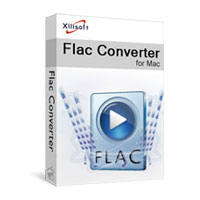

For those, I use XLD, that will try a lot harder to make a Rip and produce a file even if it can't rip correctly. So, usually, Rip is a lot faster than XLD and will generate a good rip, but now and then it will rip nothing because the CD has a fatal flaw. So, initially Rip tries to fast rip a CD and match against AccurateRip, if it succeeds it is done otherwise it will try to overrip and else. Rip's advantage is that it adopts a smarter ripping strategy, only resorting to more powerful ripping technique when it finds a problem. Later I learned about SBooth's Rip and started using it instead of XLD. So, I use XLD for the initial rip and Max to convert the FLAC into MP3. If I used XLD for both tasks, I would be constantly messing with the configuration, changing from FLAC to MP3, and every now and then would forget and rip to the wrong format. This program is very easy to navigate even if it’s your first time using it. Vidmore has a free version in case you want to convert FLAC to M4A without losing quality using an online program. If I need to rerip, I go for the FLAC file, not the CD. On that note, we’ve also prepared tools to help you convert FLAC to M4A online. AuI ConverteR 48x44 is an audiophile FLAC converter (Mac OSX, Windows) to/from mp3, FLAC, WAV, AIFF, m4a, DSF and other popular formats. I always rip first to FLAC (single FLAC file + CUE) and them convert the rip into individual MP3 files.

They support AccurateRip and use MusicBrainz for metadata, so you get certified rips with good tags. My suggestion is the same presented here previously, but I use them for different things.īoth Rip and XLD are good rippers for Mac.


 0 kommentar(er)
0 kommentar(er)
